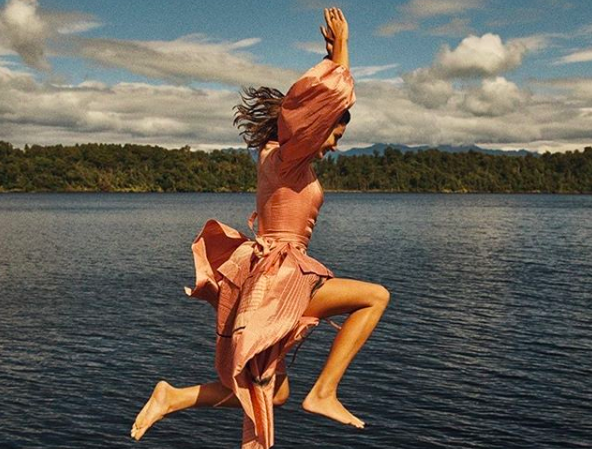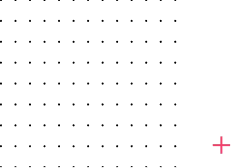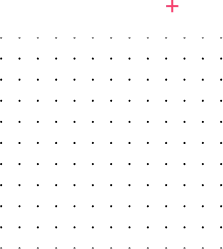Making Pre-Loved the New Black

Outstand is on a mission to inspire you to choose pre-loved fashion over new. We sat down with Founder Justine Porterie to learn what her new company is all about.
What was the journey to founding Outstand?
My background is in sustainability strategy and responsible investment consulting. I learnt a lot working for large companies, but realised after a few years I needed to get closer to the ground and my impact.
Through the Zinc programme, I looked into a number of areas to make a positive difference and realised that fashion is something that touches everyone — we all wear clothes. I saw it as an opportunity to get as many people as possible on the sustainability journey.
Outstand’s mission is to promote the use of second-hand or ‘pre-loved’ clothing — making it cool, making it easy, making it affordable — so that it becomes a true alternative to buying new. So much clothing has been produced in the world already, there’s no need to buy new. It doesn’t need to be brand new to feel new to you!
What is the scale of the problem Outstand is helping to solve?
The textile industry generates more greenhouse gas emissions than all international airline flights and maritime shipping trips combined. People are increasingly aware that flying is bad for the environment and, indeed, it is. But I feel that realising that the impact of fashion is actually bigger can help people reconsider their behaviour and spending habits.
Another piece of data I find mind-blowing is that it takes almost 3,000L of water to produce one cotton t-shirt, which is the equivalent of someone’s drinking water needs for 2.5 years! So by not buying that one t-shirt, you can make a massive difference. It’s that simple.
How does Outstand work?
Outstand is very early-stage so at the moment we’re testing product-market fit, which means testing whether there’s a market for our offering. Obviously there are second-hand marketplaces, Ebay being one of the oldest, but Outstand’s key differentiator is that we curate pre-loved pieces to make the whole experience as appealing as a fashion brand.
We’ve started on Instagram, building our community and sharing content on style, trends, second hand and sustainable fashion. We have just dropped our very first looks to fine tune our style, and start the commercial conversation with our users. The next step will be to build the marketplace and secure the supply of high quality pre-loved fashion at scale.
What makes Outstand different?
The resale market is definitely booming, which I find really exciting because it means that fashion is getting more and more circular.
What Outstand brings that is different is affordability and curation. It’s not about having anything and everything. You get cool pieces that are of great quality, and you get them at affordable prices.
You may know of companies like Vestiaire Collective or The RealReal in the United States. These guys are doing amazing things in the luxury segment. But our mission with Outstand is to tackle fast fashion, so we need to be affordable to be a true alternative to the likes of Zara.
What does success look like?
The ultimate success would be for second-hand to become people’s first choice. So whenever you need something, or want something, instead of going to the usual high street retailers or brands, you think pre-loved first.
What has been the biggest challenge so far?
I think the biggest challenge has been not having a path mapped out. It’s so different to working in big corporates where there are a number of layers of hierarchy, and always someone to report to.
As a Founder you can get guidance from advisors but, ultimately, there’s no set path and you’re the one making the decisions. This is exciting but can be overwhelming at times.
What have you found most surprising so far?
I have learnt so much in the past eight months. The journey I’ve been on to find my north star has been very rewarding and is one I’ll build on throughout my life. Seeing Outstand evolve from just an idea into something bigger every day is fascinating and keeps me going.
How have you found the Zinc experience? How do you think it has compared to trying to build Outstand on your own?
I think it wouldn’t have been possible, or it would have been way more difficult to do it on my own. In periods of doubt, having other people in the cohort who are experiencing the same challenges is so helpful. I like to say that we’re not on the same boat, but we’re definitely in parallel boats. Being able to share knowledge and experiences with fellow founders is invaluable for an entrepreneur.
Do you have any advice for future entrepreneurs?
One of the key things that Zinc taught me is not to fall in love with your idea. If you do, it can blind your judgement and prevent you from moving on. It’s best to be super rational, test your assumptions, iterate and pivot if necessary, rather than getting stuck in a rabbit hole.
What’s next for Outstand?
We want to start a movement to make pre-loved the new black. To do this we’re spending time building an outstand-ing community organically, and refining our style and tone with the help of our early users and ambassadors.
In parallel, we’re starting to explore sustainable supply sources for our pre-loved fashion, including via our users, second hand boutiques but also brands. The plan is then to start to pitch for investment in September.
Follow us on Instagram @weoutstand to follow our journey and shop our latest preloved looks! #weoutstand #preloved
Join the Zinc community
Stay up to date with all Zinc updates and future posts as part of our fast growing community.
Featured Resources
Impact Report 2023
We started Zinc with the hypothesis that missions are an effective way to attract highly ambitious, talented and experienced groups of innovators, who might not recognise themselves as “classic entrepreneurs” but are ready and able to start a new commercial and successful venture to tackle some of our most pressing societal issues.
The world has overcome the sorts of challenges we face today when it has adopted a mission-based approach to the biggest problems and brought together world-class talent to invent and innovate, e.g: NASA and landing a man on the moon, the LSE blueprinting the British welfare state, or the Gates Foundation aiming to eradicate diseases.
On this basis and assumption, we designed Zinc as a new mission-based Venture Builder — a place where global talent, ‘impact makers’, can join to experiment and develop new solutions to our most pressing societal issues.
To Eliminate Environmental Threats to Our Health
Environmental health threats pose a grave danger to human health and well-being, causing suffering to individuals and communities worldwide. These threats, which include chemical pollution, climate change, and biological hazards, cause acute and chronic diseases and exacerbate existing health conditions.
To protect those we care about, we must tackle the causes of environmental degradation, shield people from the consequences of environmental harm, and, where protection fails, we must mitigate the health impacts they suffer.
This demands action to improve all aspects of our environment: soil, food, air, water, and the built environment. It requires us to focus on every aspect of human health to reduce suffering.
Entrepreneurship and technology are powerful means to tackle these challenges. That’s why we are backing 70 founders to build innovative companies addressing this mission.


